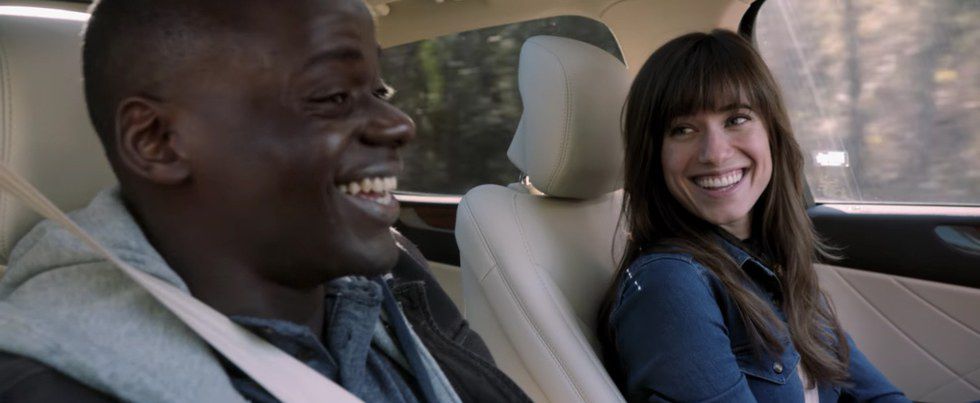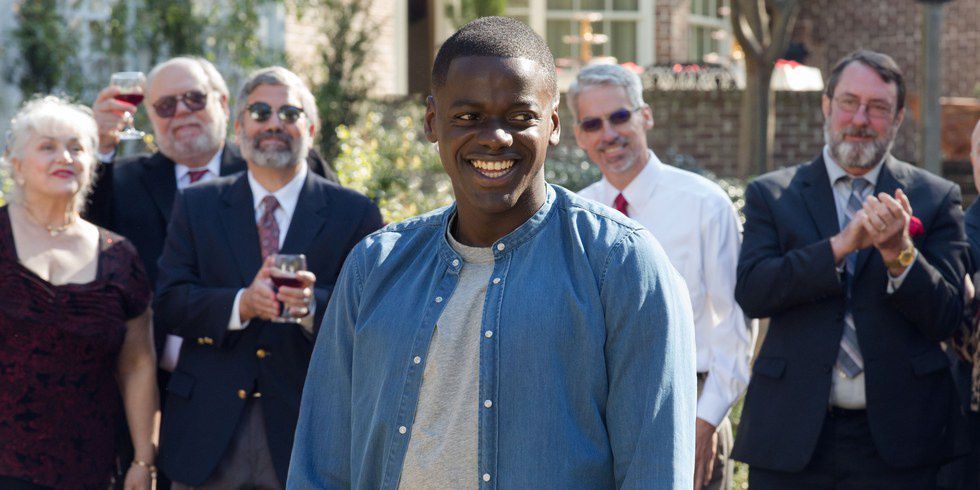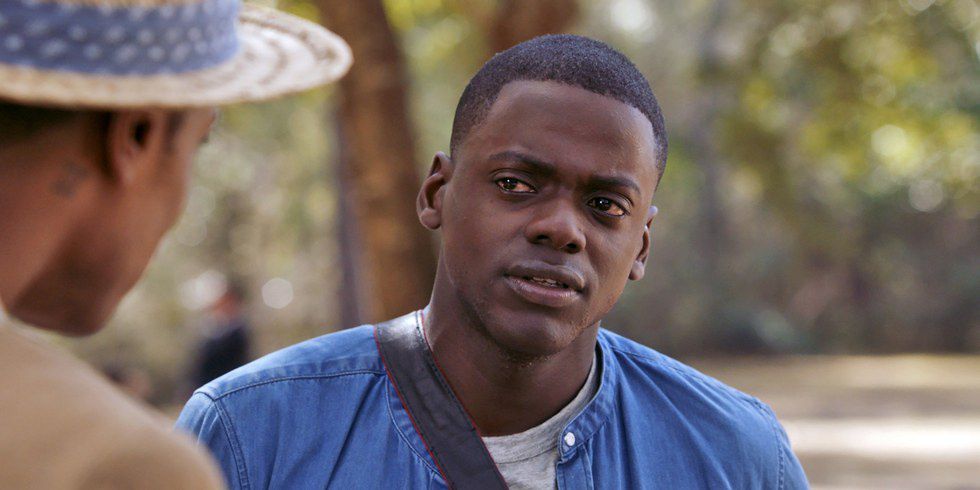If you have yet to see Get Out, the psychological thriller about being black in America directed by Jordan Peele, now is the time to exit out of this webpage, get in your car, and go see it immediately. Get Out was a excellent movie that rang all too true to what racism in America feels like, still feels like. And, if anything, it was an important lesson in the nuisances of race that went much deeper than simply racism. The lessons from Get Out may vary depending on not only your life experiences, but also on how you perceive race and racial injustice in America depending on whether you identify as black, white, or another minority (there's a reason for Peele's inclusion of one Asian character). No matter what your race, there were key lessons to take away from Get Out for everyone. For one, the simple fact that racism exist.
Too often in America do we focus on the extreme racism. When we claim to live in "post-racial" American (which we don't) we're often referring to the things that are outright racist. Our post-racial attitudes refer to the ideas that are no longer appropriate mainstream such as thinking whites are better than blacks, that slavery was justifiable, that the KKK is in the right, that calling blacks the n-word on the street is okay, that waving (or even owning) a confederate flag is okay, and other actions and thought processes that are just blatantly racist. And while that racism certainly still exists, it is far less pervasive than the other implicit, less in-your-face racism that happens in America that we don't talk about, a racism that Get Out captures perfectly.
Recommended for you
As expected, this implicit racism is the type that black people deal with every single day. It's an exhausting dehumanizing type of racism that isn't necessarily ill-intentioned but still clearly racist. If you've seen Get Out the phrase "I would've voted for Obama a 3rd time" is the clearly winner of passive aggressive racism as it assumes you voted for Obama because you're black and also makes the claim "I'm a good white person!" without having to do any of the actual work of advocating for blacks. Voting for Obama doesn't make you not a racist, and Get Out captures this beautifully in its portrayal of the "good-hearted" white person racism that black people are sick of dealing with.
Well-meaning progressive white liberals have yet to be truly reflexive in how they deal with race, because they assume they aren't racist and have never had to have a true conversation with themselves about the role they play in today's racist society. Thus, many white Americans have resorted to being all but color-blind and adding to the implicit racism rampant in society. "I don't see color" is the most passive implicit racism that minorities deal with daily.
One way Get Out displays implicit racism in a clear but subtle way is through comments on Chris' physique. Rose's brother is caught throughout the movie staring at Chris' body and seeing what a power it could be in sports if trained. Black bodies in Get Out are needed for just that, their bodies, not their minds. This is the same way blacks are treated in society, especially in professional sports where black athletes are expected to "shut up and play" and not express any political, emotional, or intellectual agenda. Blacks are wanted for their athletic ability and, based on appearance alone, are often asked upfront about what sports they play, especially if they're tall. (Pro-tip: Stop asking tall black men if they play basketball).

And as we know, our protagonist Chris is a photographer, but that doesn't stop party goers at the house to ask him about basketball, martial arts, or even insisting he show them his golf swing because "I love Tiger!" Again, to name-drop the only black person's name they can think of as to be captured as a "good-white person." Because even if they really do love Tiger, why is that necessary to mention, especially when mentioning it to someone like Chris in the movie who doesn't watch or play golf?
The "good-white person" motif is played on throughout Get Out especially with Rose who fools us all. In the beginning of the movie Rose is the "woke" white girl who is astounded by the racism around her. She gets feisty with an unfair cop, and is flabbergasted at her parents off-hand racist comments. Even when we know Rose's family is creepy af, we still somehow trust Rose; it's Peele's way of playing on America's love affair with giving white women the benefit of the doubt, even when they're clearly in the wrong (looking at you Taylor Swift). In fact, even after finding incriminating pictures of Rose's previous black conquests, Chris still trusts Rose, and quite frankly so did I until she unapologetically declared that we all just got played, including Chris.
What's captured by Chris in this moment is true fear. A fear blacks feel when realizing they're the only black person around, the fear blacks feel driving through rural or suburban America, the same fear blacks feel when getting pulled over. A true and honest fear that we've been taught to keep our whole lives. And Chris' fear brings out something even greater - his emotions. Chris is not your standard black male character that feds on toxic masculinity and misogyny. Chris is an artist. He's emotional, he's vulnerable, he cries, he has feelings. And that in itself is a small but subtle reminder that black people are not magical creatures with exceptional bodies made to fulfill fantasies, but that black people, like all people, are just people.
The lesson to be learned from Get Out wasn't to insult white people, and the fact that said fact even needs to be explained reflects Jordan Peele's comment on whiteness and the inability of "well-meaning whites" to be reflexive on race.
Even in the very last scene of the movie when the police car shows up and Chris is clearly defending himself and completely in the right, the whole theater groans because we know it's over for Chris. Blood is on his hands, he's about to be shot dead. And that's the reality in today's America, that black Americans more times than not will be treated unfairly due to their race, and then killed for it and that whites will spend more time finding a way to justify actions instead of simply listening to the strife that blacks face daily. Get Out was the most extreme version of this. There's no way to justify Chris was in the wrong in killing the family as a means of escaping when a white family literally tried to saw out his brain to fulfill their fetish of black bodies. And this inability to admit wrongdoing is exactly Peele's commentary. The strife of blacks exist, and it's exhausting. And, to a lot of blacks, once that racism gets internalized, the sunken place becomes real and it's hard to get out.
Peele's plea is simple - it's to think. It's to make everyone think on what their role is or has been is creating or continuing the racial society that we live in. It's the slight nudge at the fact that everyone is racist, even if they don't think they are or don't want to be or aren't meaning to be. It's a comment on what it even means to be racist because it's not just thinking whites are superior, it's "but I have black friends" too. In a nutshell, it's time to Get Out of the sunken place and start combating racism for real.



















